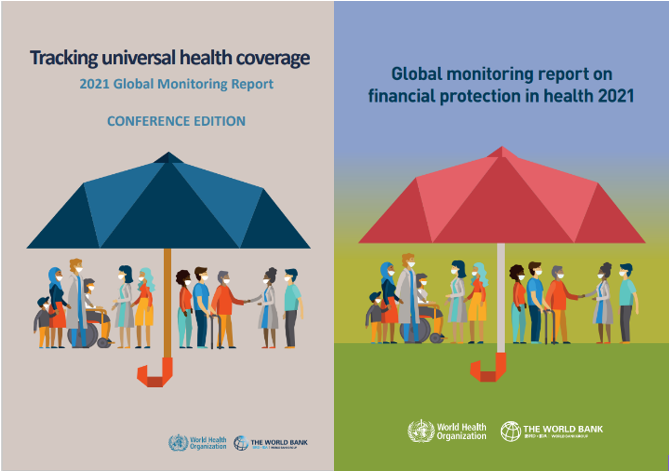WKC research contributes to global monitoring reports on universal health coverage

The year 2021 ended on a high note as studies from the WHO Centre for Health Development (WHO Kobe Centre - WKC) were included in two flagship reports by WHO and the World Bank that track progress of the Sustainable Development Goals (SDGs) on universal health coverage (UHC).
WKC focuses, among other things, on the health systems response to accelerate UHC in the context of population ageing. Financial protection is an intrinsic part of UHC, and together with service coverage, is one of the health system’s goals.
WKC advocated for analysis by age to be included in the Global Monitoring Report on Financial Protection in Health, and the Centre’s work on analyzing financial hardship due to health care by age composition of the household formed the basis of a chapter section in the report, “Who experiences financial hardship? A focus on age” (pages 17-21).
One of the SDG indicators to monitor the dimension of financial protection is based on catastrophic expenditure, measured at the level of the household. WKC raised the importance of considering the health care needs of older people by examining the age structure of households, and provided resources for a novel analytical approach. For the first time, WHO and the World Bank did comparisons of financial protection indicators by household age structure.
The analysis results showed that households with at least one person over 60 years had the highest proportion of catastrophic expenditure, a nuanced finding that had not been revealed before.
In addition, three WKC studies were featured prominently in boxes in the report:
- “Health spending and unmet need among households with older persons in Japan” (Box 5, page 21) based on Household survey analysis of financial hardship due to excessive health spending and unmet care needs of older people in Japan with implications for the Kansai region
-
“Forgone care and financial barriers to healthcare access: A systematic review and meta-analysis” (Box 8, page 27) based on Systematic review and meta-analysis: financial barriers to accessing health services and unmet healthcare needs
-
“Composition of out-of-pocket health spending and financial coping strategies among households with older persons in Viet Nam” (Box 11, page 49) based on Measuring financial protection for older persons in Viet Nam
WKC is helping to drive the global agenda on examining unmet health care need. A further report, Tracking Universal Health Coverage: 2021 Global Monitoring Report describes WKC’s work on unmet need in adult populations based on preliminary findings from 78 low-, middle- and high-income countries using household surveys (page 13, reference 19).
Results of the analysis indicate that levels of unmet health care need tend to be lower in countries with higher values of the UHC Service Coverage Index. This suggests that better service coverage would lead to reductions in unmet care needs, and conversely, addressing unmet health care needs would improve levels of service coverage.
This global research is highly relevant to the Kansai region. WKC’s work on unmet care needs is continuing with an application to the Kansai region in partnership with several institutions including Kyoto University, Osaka University and Konan University. Two complimentary studies are being carried out. One study, mentioned earlier as one of the studies featured in the Global Monitoring Report on Financial Protection in Health, involves statistical analysis of existing household surveys to examine financial hardship due to excessive health spending and unmet care needs of older people. The other study will gather information from medical social workers to identify barriers to effective implementation of financial protection policies for older people in need of health care. Results from both studies can help identify possible gaps in service coverage and financial protection for older citizens, as well as offer insights about how existing local programs and policies could be implemented more effectively to mitigate financial hardship of older citizens due to health spending in Kansai. The findings can also feed into the next global monitoring reports to be published in 2023.

